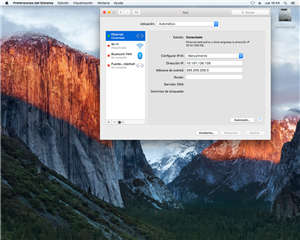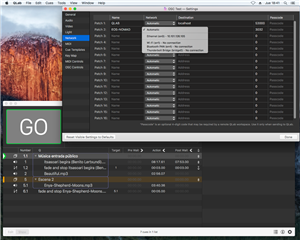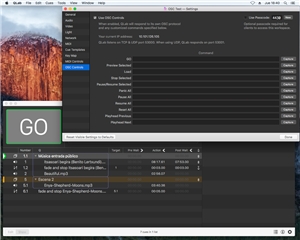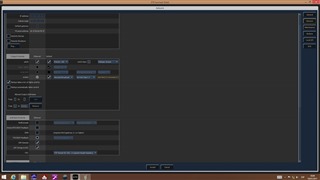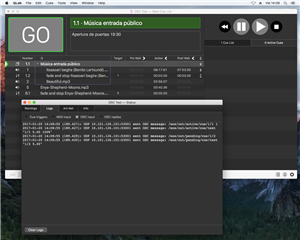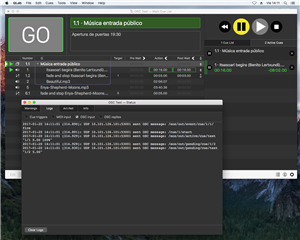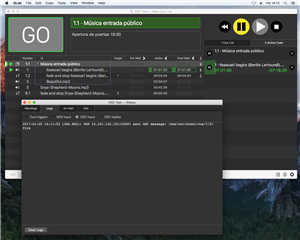hello everyone.
I can not run Qlab (v 3 .... v 4) in stable mode with EOS-NOMAD via OSC. By midi (MSC) the interaction is totally reliable and does not present any problem ... but OSC has a greater potential of instructions, there my obsession to make it walk.
My goal is for EOS-NOMAD to activate the QLAB cues, and it does so but in an irregular way which gives a lot of insecurity. In the soft EOS does not seem to be the problem, if we go to Tab 99 (diagnostics) and put (On) Outgoing OSC we see how EOS sends the instruction string (send String: / cue / 1 / start) (OSC Packet), in Qlab click Status, open the Logs tab and activate OSC input to see what goes in ... and here we see that sometimes the instruction string arrives and others do not, it is lost.
These are the configurations. What am I doing wrong? Where is the error?
Thank you.


